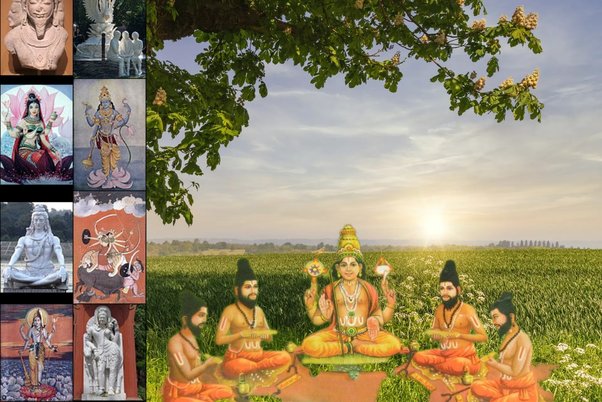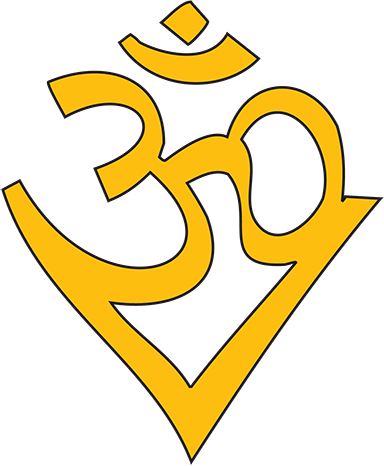opinion A fusion of science and spirituality in Sanatan Dharma
Published in the Sunday Guardian Mumbai

By Nitin Mehta
April 7, 2024
India has always seen science and religion as complementary.
As the world enters the age of Artificial Intelligence it is a certainty that new inventions and scientific breakthroughs are going to be of paramount importance for India to be a leading global power. India has had an ancient heritage of freedom of expression, reform movements and those who challenge the status quo. This gives Indians a distinct advantage. They have an inquiring and challenging mind compared to countries where people have been suppressed. Atheists and agnostics all have a place in Sanatan Dharma. The Charvaka school of thought rejected the idea of a God completely. Rather than calling them heretics the Charvakas were accepted as offering an alternative view. Another exceptional thing in Sanatan Dharma is that there is no conflict between religion and science. Some of the greatest discoveries in olden times were made by rishis or sages. Some of the rishi-scientists were: Sushruta known as father of surgery (6th century BCE), mathematician Aryabhata, (476-550 CE), Kanada (6th century BCE), first proponent of the “atomic theory”, Charaka, a Buddhist monk (300 BCE) and author of Charaka Samhita. His book is a famous treatise that is used as a reference even today. The book explores the fields of physiology, etiology and embryology. Other great ancient scientists were Brahmgupta (597-670); he was the first to treat zero as a number. Bhaskaracharya, a 7th century mathematician is also credited for the zero invention. Without this the world would not have made any scientific progress. Pingala, Varahamihira, Brahmgupta, Nagarjuna, Halayudha, Mahavira, Sridhara, Aryabhata and Patanjali were other great scientists. These rishi-scientists had renounced the world and after years of penance attained enlightenment. Their starting point was that there is an all pervading God who is the beginning and end of everything.
Going even further back the Vedas were a storehouse of the greatest wisdom known to mankind. Francois Voltaire (1694-1778), France’s greatest writer and philosopher, enthused that the Vedas were the most precious gift for which the West had ever been indebted to the East. Arthur Schopenhauer (1788-1860), one of the greatest German philosophers and writers said, “In the whole world there is no study so beneficial and as elevating as the Upanishads”.
Between 19th and 20th centuries, Indian scientists also made a huge contribution to the world. Here are some names: Sir Jagdish Chandra Bose, Srinivasa Ramanuja, Sir C.V. Raman (Nobel Prize winner in Physics, 1930), S. Yellapragada Subbarao (father of targeted cancer chemotherapy), Sir Prafulla Chandra Roy, Janaki Ammal, Abhay Ashtekar, Meghnad Saha, Vikram Sarabhai and Satyendra Nath Bose.
At present Indians make up 38% of all doctors, 36% of NASA employees and 34% of Microsoft employees in the United States. Vinod Dahm, Sabeer Bhatia, Sundar Pichal, Ruchi Sanghvi, Shantanu Narayan and others have dominated Silicon Valley in the US. Some of the Indian men and women holding important and leading positions on the US Mission Mars are Dr Akshata Krishnamurthy and Amit Kshatriya, Amongst the women working on the Mars project are Priyanka Srivatsava, Yogita Shah, Usha Gudurai and Nagin Cox.
Albert Einstein had said that science without religion is lame and religion without science is lame. India has always seen the two as complementary. A day ahead of the Chandrayaan-3 mission, a team of ISRO scientists visited and offered prayers at Tirupathi Venkatachalapathy Temple in Andhra Pradesh with a miniature model of Chandrayaan. Indian-American scientist Sunita Williams took the Bhagavad Gita and Upanishad to space to derive inspiration from them. This is the Indian way.
India is in that unique position which comes rarely in the fortunes of a nation. It is ready to take off and write its own history. It has to understand the magnitude of the opportunity and challenge it has. India must not lose sight of spirituality in the pursuit of science
Nitin Mehta
www.nitinmehta.co.uk

Recent Comments